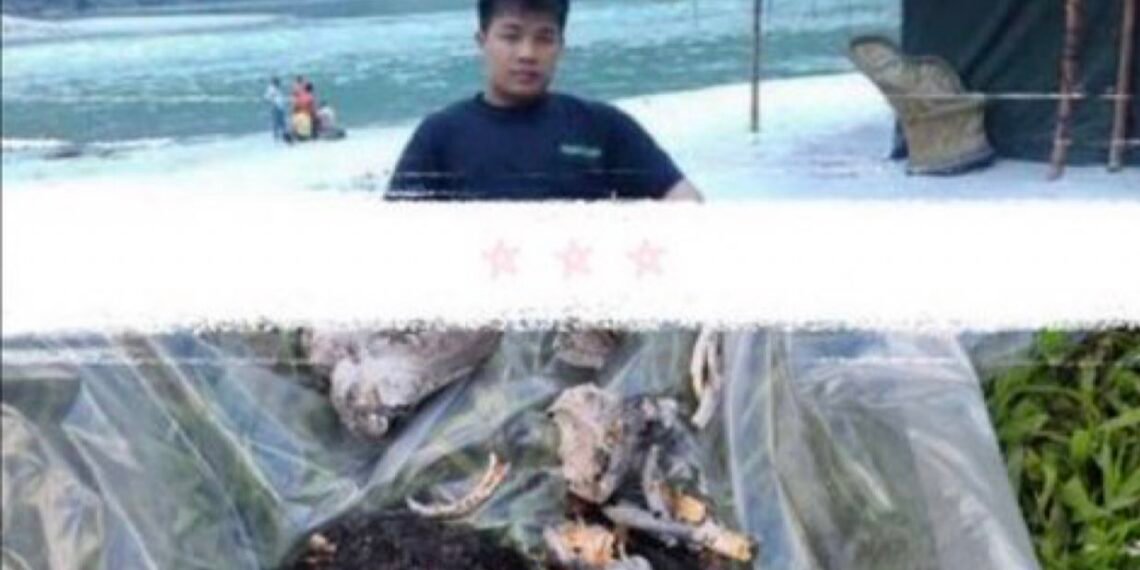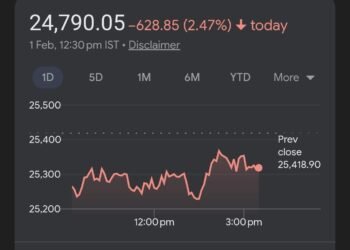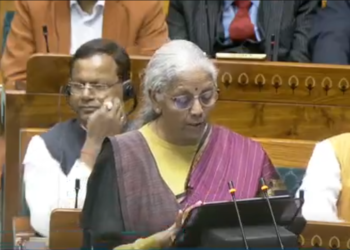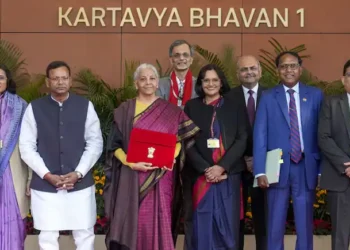A five-part investigation into spine-chilling cases of violence and impunity across Manipur’s conflict zones—murders unsolved, lives unacknowledged, justice delayed or denied. This series sheds light on those left behind in the shadows of state failure and silence. It also exposes the gross injustice and discriminatory approach of the prosecution—both in Manipur and across the Indian legal system—where “some” victims are “conveniently” forgotten, and accountability remains elusive.
BY Navin Upadhyay
August 2, 2025 — Two years after one of the most gruesome killings in Manipur’s long-running ethnic conflict, justice remains a distant hope for the family of David Thiek, a 31-year-old Kuki-Zo tribal man brutally beheaded during an armed assault on his village. The incident, which shocked the state and went viral across social media, continues to haunt the collective memory of the community—yet there have been no arrests, no confirmed suspects, and no official progress in the investigation.
David Thiek was reportedly serving as a volunteer village guard in Langza, a Kuki-dominated settlement near the Bishnupur-Churachandpur border, when alleged Arambai Tenggol assailants launched a pre-dawn attack on July 2, 2023. According to the account lodged by his uncle, Buonkhawlien, Thiek endured horrific torture before being killed. His right eye was gouged out, both arms were chopped off, and he was eventually beheaded. The attackers allegedly set his dismembered body on fire. Later, images and videos circulated online showing Thiek’s severed head impaled on a bamboo fence in what appeared to be a residential area in Bishnupur. The images caused widespread outrage both within and beyond Manipur.
The attack came amid a violent flare-up in ethnic tensions between the majority Meitei community, mostly concentrated in the Imphal Valley, and the hill-dwelling Kuki-Zo tribes. What began with a Tribal Solidarity March on May 3, 2023—held in protest of a High Court recommendation to grant ST status to Meiteis—escalated into full-blown ethnic conflict. By November 2024, the violence had claimed at least 258 lives, displaced 60,000 people, and left thousands of homes and places of worship in ruins.
READ: “Predator” Revanna Gets Life Term in Domestic Worker Rape Case
Thiek’s murder was met with public outcry. His uncle filed an FIR at Churachandpur Police Station the same day, accusing unidentified armed attackers of murder and illegal possession of weapons. The complaint also mentioned the suspected involvement of Manipur Police commandos, a claim echoed by several tribal groups. The case, however, was quietly transferred to Kumbi Police Station in Meitei-majority Bishnupur district—an administrative decision that has been a major source of controversy. Many in the Kuki-Zo community saw the move as an attempt to shield perpetrators and compromise the investigation’s neutrality. Local residents and advocacy groups accused the state police of ethnic bias, pointing out that most investigative agencies on the ground were dominated by Meitei personnel.
No one should condone beheading. The culprits must be given capital punishment.
Let’s not forget #MeiteiWarCrimes , the beheading of David Thiek by #MeiteiTerroristsArambaiTenggol #MeiteiAtrocities#MeiteiTerrorists#MeiteiLiesXposed pic.twitter.com/cLljgqZdEX— Chan (@SaraChanHaokip) January 30, 2024
Adding to the volatile situation was the alleged identification of a man named Mairembam Romesh Mangang as one of the perpetrators. Mangang, said to be a personal security officer linked to a BJP legislator from Kumbi, was photographed holding what appeared to be Thiek’s severed head and a machete. The authenticity of the photo remains unverified by authorities, and Mangang has not been questioned or detained. Social media users, especially Kuki-Zo activists, have repeatedly flagged his name, accusing the police of protecting him and alleging that he may have fled the state. However, none of these claims have been formally acknowledged by investigators.
READ: Tejashwi’s Name Missing from Voter List, ECI Denies
The case has remained in limbo ever since. No arrests have been made, and no progress has been shared with the family or the public. Forensic evidence, if any was collected, has not been disclosed. No autopsy report, DNA analysis, or ballistic findings have been shared, despite the brutal nature of the crime and the viral media surrounding it.
Public anger reached a flashpoint on July 5, 2023, when around 2,000 village volunteers dressed in camouflage and black staged a protest march through Churachandpur. Organized by the Lamka Resurgent Squad, the rally demanded justice for Thiek and accountability for those responsible. The demonstration ended at the Wall of Remembrance, a symbolic site for victims of the ongoing ethnic violence. Yet no official action followed, and protestors’ demands were met with silence from state authorities.
Moments before David was inhumanly beheaded by Meitei mobs
Whoever did this to should be grinded to dust
And should rot in prison until the grass burns out🤬#manip pic.twitter.com/kkc9o0htIi— Rosy_158 (@Rosy2333304761) November 3, 2023
Ten Kuki-Zomi MLAs, including seven from the BJP, as well tribal organisations called for a Central Bureau of Investigation (CBI) probe, but the Biren Singh Government didn’t handover the case to CBI or the National Investigation Agency (NIA).
Observers say this case exemplifies the breakdown of law enforcement in conflict-torn Manipur. Thousands of FIRs have been filed since May 2023, including over 70 murder cases, yet few have yielded results. In 2024, the Supreme Court of India sharply criticized the state’s law-and-order machinery, stating that Manipur was witnessing an “absolute collapse” of governance and judicial oversight.
The inability to investigate Thiek’s murder speaks to the broader issues plaguing the state: an overwhelmed police force fractured along ethnic lines, political reluctance to pursue sensitive leads, and a community terrified into silence. Some analysts argue that the state government, previously led by Biren Singh, was more interested in projecting stability than pursuing justice. Singh resigned in February 2025 after months of mounting pressure and criticism, including allegations that he had enabled or ignored vigilante attacks by Meitei armed groups.
David Thiek’s burnt remains were found here at the entrance of Langza: pic.twitter.com/cL888uXLT2
— Greeshma Kuthar (@jeegujja) July 10, 2023
Posts from prominent tribal voices have accused the system of “selective justice,” comparing Thiek’s unresolved case with the swift arrests in the Jiribam killings, which targeted Meitei victims. Without a credible central investigation or witness protection, many in Churachandpur believe the case will be quietly buried.
As of August 2025, David Thiek’s family has received no update from Bishnupur Police. There has been no indication that authorities are planning new investigative efforts. The viral video and photos remain unexamined in any public legal forum. Meanwhile, in Langza village, Thiek’s memory has become both a symbol of resistance and a painful reminder of a justice system in paralysis.
Unless a dramatic shift occurs—such as intervention from the central government or renewed attention from the judiciary—the beheading of David Thiek will likely remain another unresolved chapter in Manipur’s spiraling ethnic crisis. For his family and community, the wait for justice continues, marked by silence, suspicion, and a deepening sense of abandonment.













